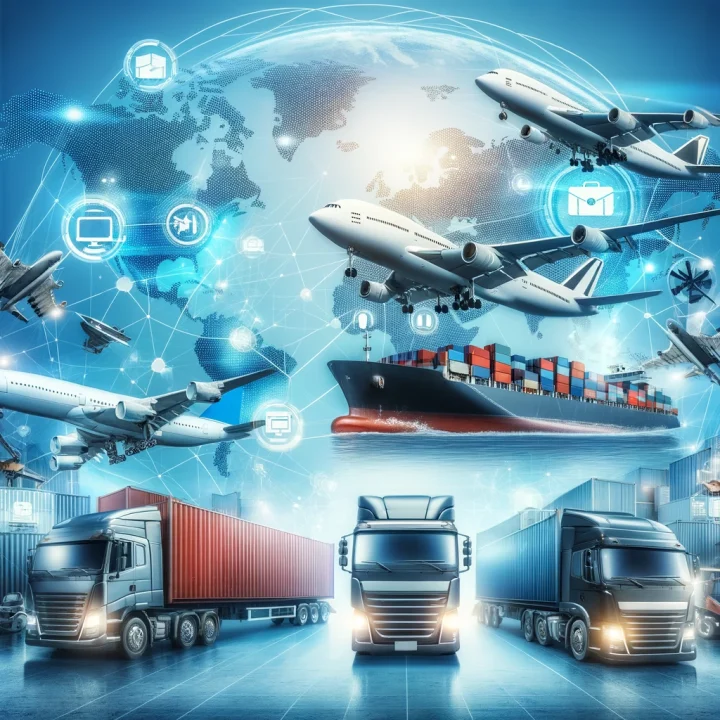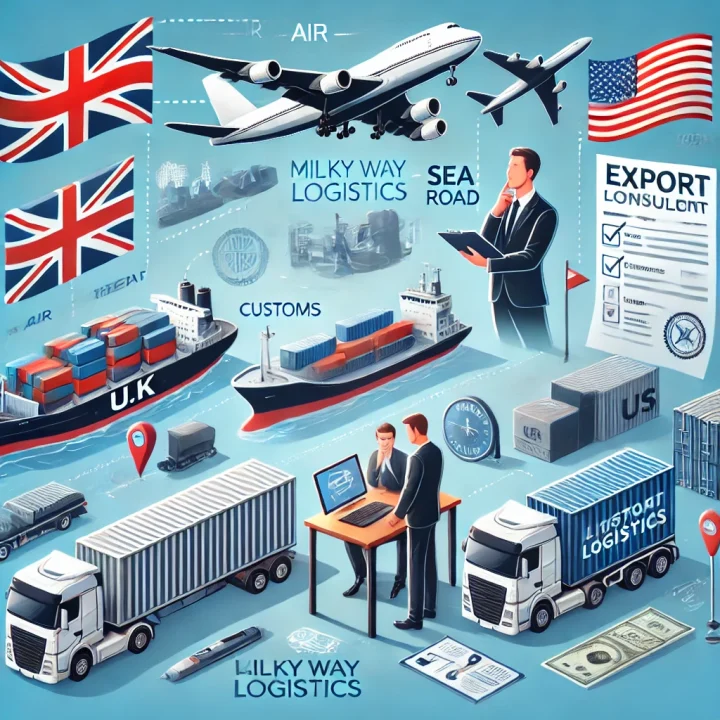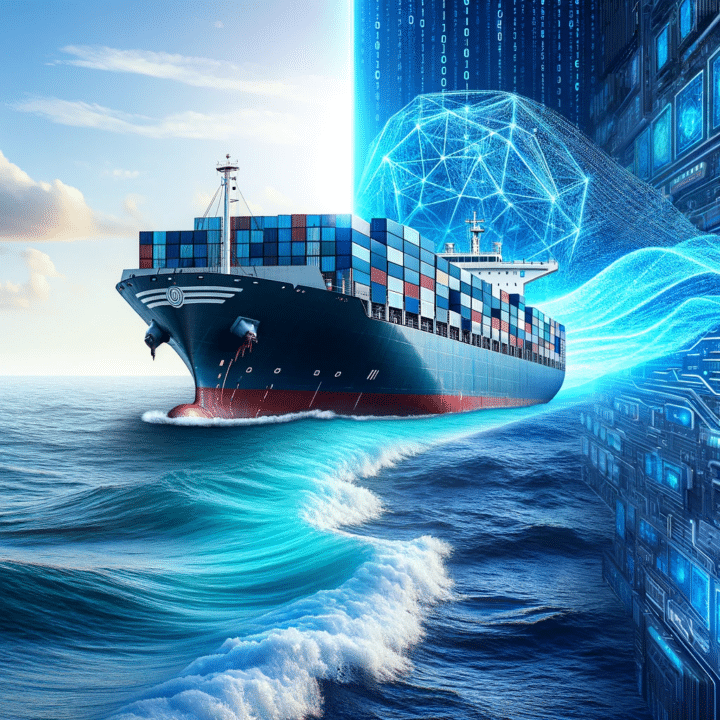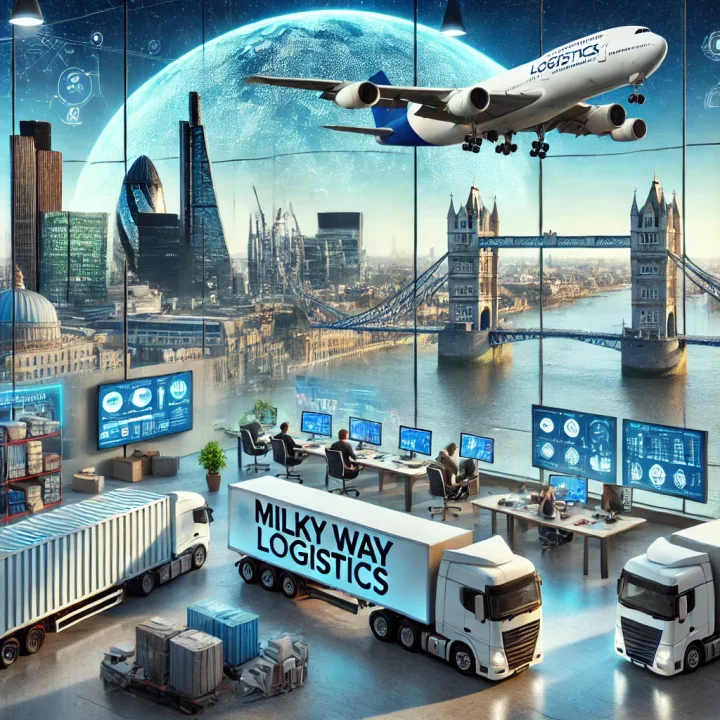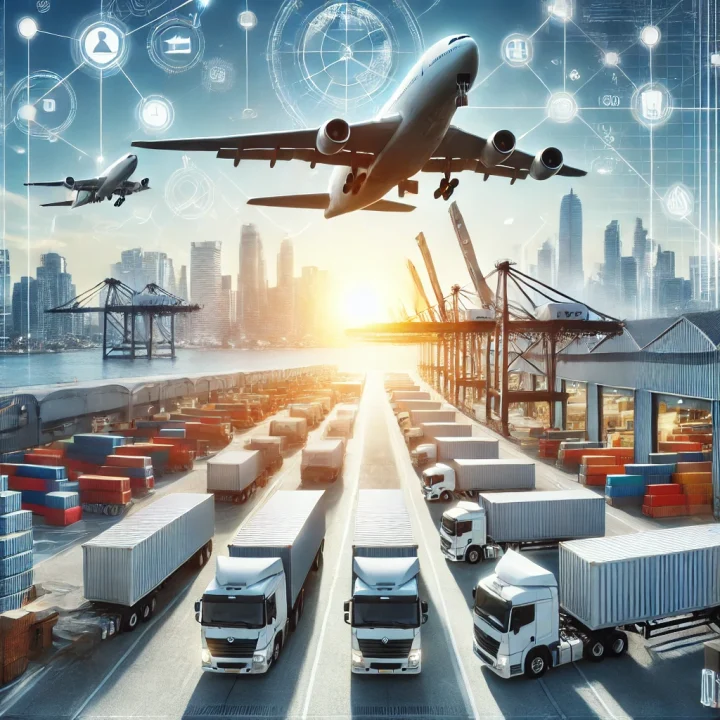The Role of Artificial Intelligence in Enhancing Sustainable Practices in the Freight Industry
What is AI?
Artificial Intelligence (AI) is a transformative technology that simulates human intelligence processes through computer systems. This innovative field combines computer science, psychology, and even philosophy to create machines capable of learning, problem-solving, perception, and decision-making. AI applications range from simple tasks, like voice recognition, to complex ones, like interpreting and predicting data. Its significance lies in its ability to process large amounts of data rapidly and make decisions or predictions, often outperforming human capabilities in speed and accuracy. AI’s impact spans various industries, revolutionizing operations, efficiency, and innovation.
AI and Freight Industry:
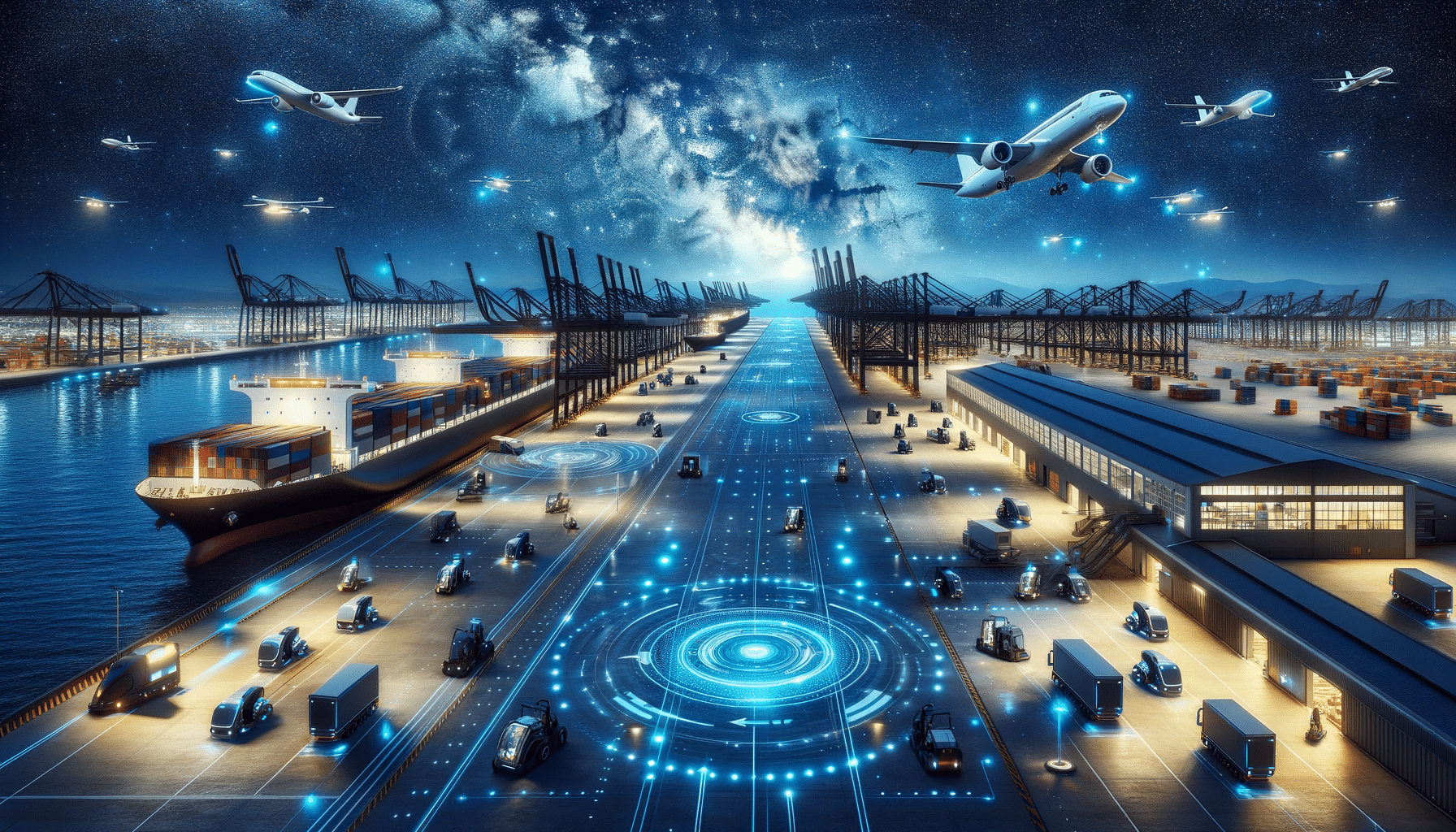
Milky Way Logistics Freight Industry
In 2024, Artificial Intelligence (AI) is expected to significantly impact the freight industry through various innovative applications. This influence will be evident in several key areas:
Automated and Predictive Logistics:
AI will enable more efficient routing and scheduling of shipments. By analysing historical data and real-time conditions such as traffic, weather, and vehicle performance, AI can optimize routes, reducing fuel consumption and improving delivery times.
Enhanced Tracking and Transparency:
With AI, the accuracy of tracking shipments will improve. AI algorithms can predict potential delays and automatically update stakeholders, enhancing supply chain visibility and reliability.
Intelligent Warehousing:
AI-driven robots and automated systems will increase efficiency in warehouses. These systems can sort, store, and retrieve goods faster and more accurately than human workers, leading to a reduction in errors and an increase in productivity.
Predictive Maintenance:
AI can analyse data from vehicle sensors to predict and prevent equipment failures. This predictive maintenance can reduce downtime and extend the life of fleet vehicles.
Dynamic Pricing Models:
AI will enable more dynamic and accurate pricing based on demand, capacity, and external factors. This can lead to more competitive rates and better margin management for freight companies.
Enhanced Safety Measures:
AI can improve safety by analysing driving patterns and suggesting corrective actions to prevent accidents. This could be particularly impactful in reducing the number of accidents involving large trucks and commercial vehicles.
Customer Service and Experience:
AI chatbots and virtual assistants can provide instant responses to customer inquiries, improving the customer experience. Additionally, AI can personalize service offerings based on customer history and preferences.
Sustainability Initiatives:
AI can play a crucial role in promoting sustainability in the freight industry by optimizing routes for fuel efficiency and helping companies meet environmental regulations and goals.
Integration with IoT and Blockchain:
The integration of AI with other technologies like the Internet of Things (IoT) and blockchain will further enhance supply chain transparency and efficiency.
Challenges and Ethical Considerations:
While AI brings many benefits, it also poses challenges such as job displacement and privacy concerns. The industry will need to address these ethical considerations and ensure a balance between technological advancement and social impact.
In conclusion, AI’s role in the freight industry in 2024 will be multifaceted, offering significant improvements in efficiency, safety, and customer satisfaction. However, it will also require careful management of the associated challenges and ethical implications.
Incorporating AI into the freight industry has several pros and cons:
Pros:
Efficiency: AI can optimize routes and schedules, reducing fuel consumption and delivery times.
Accuracy: Enhanced tracking and predictive analytics improve the reliability of delivery estimates.
Cost Reduction: Automated systems can lower labour costs and improve warehouse operations.
Predictive Maintenance: AI can foresee equipment failures, reducing downtime.
Improved Safety: AI can analyse driving patterns to prevent accidents.
Cons:
Job Displacement: Automation may reduce the need for human labour.
Privacy Concerns: Handling vast data sets could lead to privacy issues.
High Initial Costs: Implementing AI systems requires significant investment.
Reliability and Dependence: Over-reliance on AI systems may pose risks if systems fail.
Ethical Considerations: There are concerns about decision-making transparency and accountability in AI systems.
These factors highlight the need for balanced and ethical implementation of AI in the freight industry.
For Milky Way Logistics Ltd, a freight forwarding company based in London, the integration of Artificial Intelligence (AI) could be a game-changer in enhancing its freight solutions. AI’s capabilities in predictive logistics, automated systems, and enhanced tracking can significantly boost operational efficiency. It enables smarter route planning, accurate tracking, and dynamic pricing models, leading to fuel savings and better time management. Additionally, AI-driven warehousing and predictive maintenance can reduce errors and equipment downtime. However, the company must also navigate potential challenges, including high implementation costs, privacy concerns, and ethical considerations around job displacement and decision-making processes. By leveraging AI’s strengths while addressing these challenges, Milky Way Logistics Ltd can significantly improve its sustainability practices and overall service delivery in the freight industry.

